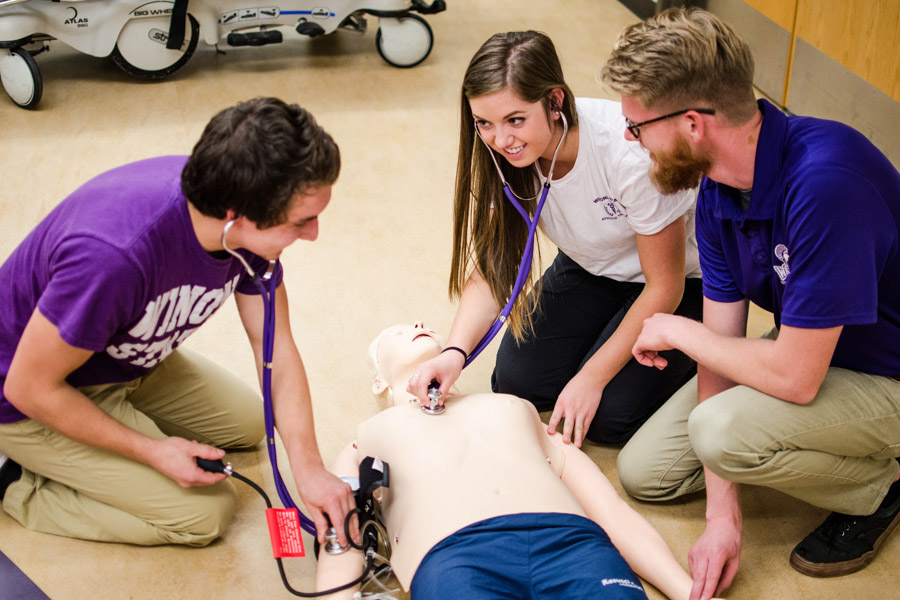
Clinical Exercise Science
Bachelor's
PROGRAM SNAPSHOT
Help people avoid developing chronic diseases. Improve the well-being of patients who have an existing chronic health condition.
As a Clinical Exercise Science major, you will learn how lifestyle choices influence our health and how to help individuals enhance their overall well-being through rehabilitation.
You will also:
- prevent, evaluate, and treat chronic health conditions.
- understand how changes in the body can impact lifespan.
- study the response of different body systems to various forms of exercise.
- gain hands-on rehabilitation experience for conditions such as cancer, obesity, and other chronic health issues, including those affecting the heart and lungs.
The Clinical Exercise Science Program is accredited by the Commission on Accreditation of Allied Health Education Programs (CAAHEP) based on the recommendation of the Committee on Accreditation of Exercise Science. This bachelor’s program aims to prepare competent, entry-level exercise science professionals in the cognitive (knowledge), psychomotor (skills), and affective (behavior) learning domains.
Graduates from this program will be equipped with the skills and knowledge necessary for healthcare careers in clinical exercise science, particularly in clinics, hospitals, and wellness centers.
According to the Centers for Disease Control & Prevention (CDC), chronic health conditions are among the top causes of death and disability in the U.S., with 6 in every 10 adults having at least one chronic disease.
Risk behaviors like poor diet, low physical activity, and excessive tobacco and alcohol use can cause many chronic diseases. That’s why health professionals who are trained in prevention strategies for these risk behaviors are in high demand.
With the Clinical Exercise Science major at Winona State, you’ll know how exercise, nutrition, behavior change, and education can all improve the well-being of individuals who have serious, long-term health conditions.
This degree includes several opportunities for students to achieve 700 hours of hands-on field experience at clinical settings throughout the nation.
Join the only undergraduate Clinical Exercise Science program in Minnesota.
The Clinical Exercise Science program is offered through WSU’s Department of Health, Exercise & Rehabilitative Sciences (HERS).
Aside from major- or minor-specific requirements, you’ll need to complete additional requirements through the General Education Program (GEP) to earn your degree from Winona State University.
Learn More about the GEP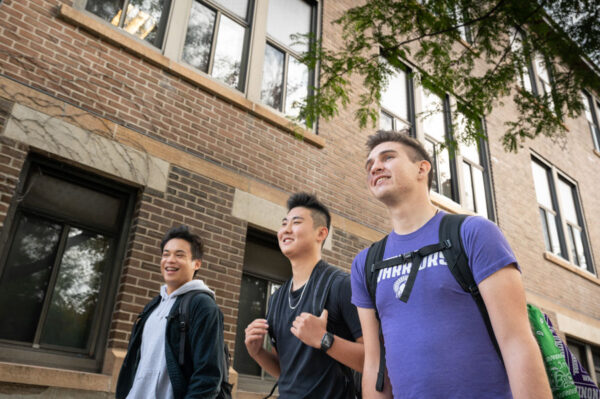
In the Classroom
Be one step closer to becoming a clinical exercise science professional by getting the real-world preparation you need along with your degree.
This major’s curriculum prepares you to sit for the Clinical Exercise Physiologist certification exam through the American College of Sports Medicine (ACSM).
You’ll also be eligible to become a Certified Cardiac Rehabilitation Professional through the American Association of Cardiovascular & Pulmonary Rehabilitation (AACVPR).
You’ll have immediate access to cutting-edge technology.
Our learning spaces in Maxwell Hall, like the Exercise Physiology Lab, feature simulation manikins that allow you to practice emergency care—from performing CPR to identifying vitals and assessing both cardiac and respiratory conditions.
And in the Integrated Wellness Complex (IWC), you’ll learn exercise techniques year-round.
Beyond Campus
On-the-job training is important, which is why you’ll complete a 600-hour clinical internship prior to graduation.
This intensive field experience will give you hands-on, faculty-supervised practice with a variety of target populations and at different regional workplaces.
We prepare our students well, and that’s why clinical sites across the Midwest want alumni to work for them.
In addition to your internship, you’ll complete a 100-hour practicum through Winona State’s Cardiopulmonary Rehabilitation Program.
Through this program set in the IWC, you’ll design rehabilitation exercise programs for community members who have chronic heart, lung, and other metabolic conditions.
Community members gain a supervised rehabilitation plan aimed at improving their health and overall well-being.
You’ll also practice your clinical diagnostic testing skills by performing stress tests, EKGs, and cardiovascular assessments.
Apply what you learn in the classroom by traveling the world. At WSU, you can earn credit that applies to your degree while exploring the globe.
Learn about health promotion in Peru, food systems in Hawaii, and health, exercise, and medicine in England and Ireland.
Or dive into the business of health care in Paris and child welfare and health systems in Jamaica.
Complement your studies and meet other students who are passionate about clinical exercise science through a handful of campus clubs and organizations.
Join the Clinical Exercise Science Club, Facilitators of Recovery & Movement Enhancement (FRAME), and LeadHERS for Winona State HERS Alumni.
Or check out Alpine Club, Climbing Club, and other year-round sports clubs and intramural sports teams.
According to the Bureau of Labor Statistics, exercise physiologist jobs are expected to grow 10% within the next decade.
The following information complies with Regulation 34 CFR 668.43 (a) (5) (v) through the U.S. Department of Education:
WSU’s Clinical Exercise Science program curriculum meets state educational requirements in the states/jurisdictions of: Alabama, Alaska, Arizona, Arkansas, Colorado, Connecticut, Delaware, Florida, Georgia, Hawaii, Idaho, Illinois, Iowa, Kansas, Kentucky, Louisiana, Maine, Maryland, Massachusetts, Michigan, Minnesota, Mississippi, Missouri, Montana, Nebraska, Nevada, New Hampshire, New Jersey, New Mexico, New York, North Carolina, North Dakota, Ohio, Oklahoma, Oregon, Pennsylvania, Rhode Island, South Carolina, South Dakota, Tennessee, Utah, Vermont, Virginia, Washington, West Virginia, Wisconsin, Wyoming, and District of Columbia.
Last updated on July 1, 2021.
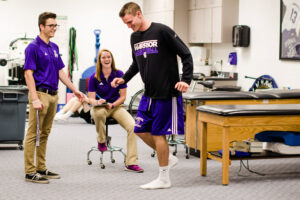
Bachelor's, Master's
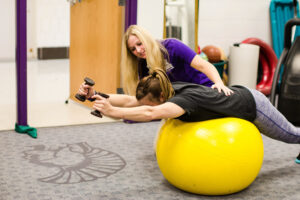
Bachelor's, Transfer Pathway
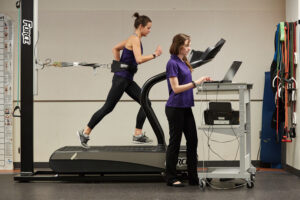
Bachelor's